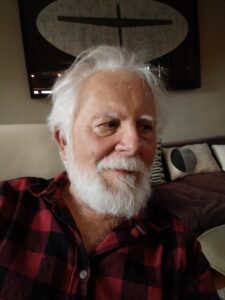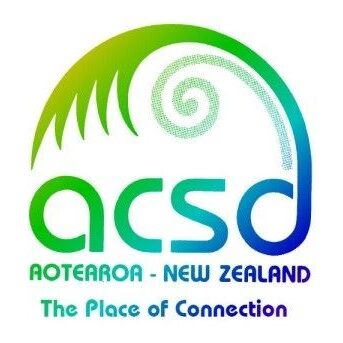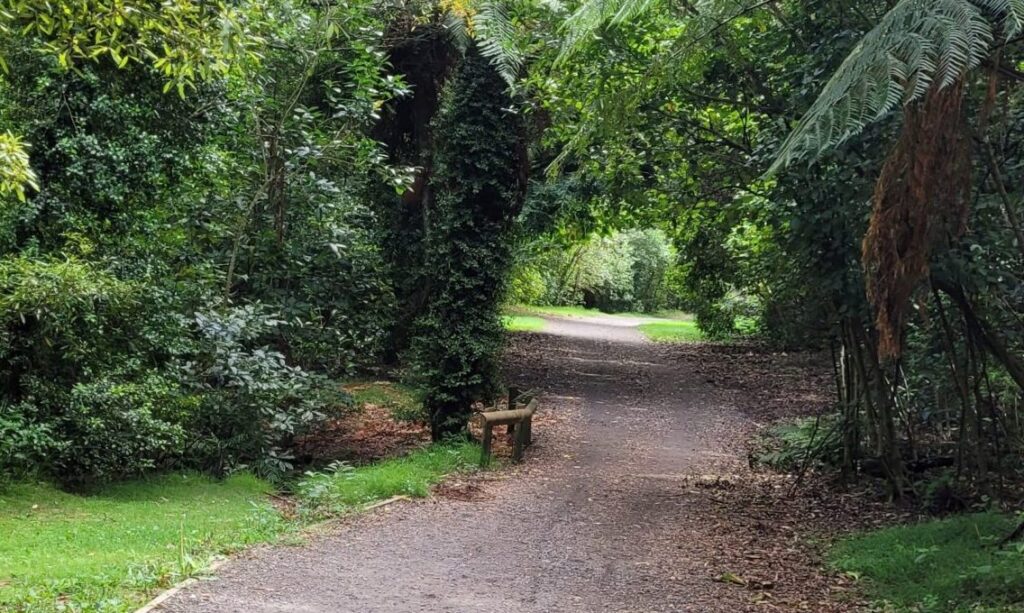Tuhia ki te rangi, tuhia ki te whenua, tuhia ki te ngakau o tangata,
ko te mea nui, ko te aroha. Te hei mauri ora

The Association of Christian Spiritual Directors finds itself at an exciting yet challenging threshold moment. The landscape around us is shifting—church life is unsettled, the wider culture is restless, and many are seeking meaning in unfamiliar places.
In such a season, the task of spiritual direction is not diminished but deepened. We are being invited to listen more carefully, to discern more attentively, to stand with others at the edges of change.
At its heart, spiritual direction is a ministry of presence. In a world of speed and distraction, it insists on a slower rhythm—stillness, silence, and the spaciousness to notice God. These are not luxuries. They are human rights and vital acts of
resistance against the fragmentation of our time. People are aching for this kind of listening, whether they name it in Christian or religious terms or not. Others are restless for the adventure of a deeper spiritual enquiry. The future of Spiritual Direction will need wise and generous directors.
Do we take into the future only the traditional model of one to one, director and directee. Or, can we be open to new expressions of spiritual direction. For instance spiritual direction with couples? Spiritual direction for groups and organisations.
Spiritual direction in discerning ways forward in conflict. In this pursuit, I suggest that ACSD remain identified by its Christian kaupapa and not wider. That space is met well by SDI. I say this because we haven’t yet explored the extensive diversity and expressions within the church. For instance Eastern Orthodox, Quaker, unchurched faithful, te ao Maori expressions, Anabaptists and others. No doubt this calls for generous compassion, openness and understanding.
We must also be honest about the risks. If we seek relevance by mimicking the language of wellness or coaching, we risk losing the contemplative depth and deep traditions that makes spiritual direction unique. Without careful formation, supervision, and accountability, the ministry could be diluted, even harmful. And if it becomes too commercialised, it will slip from its roots in hospitality and gift, serving only those who can afford it.
What then of ACSD?
I believe its call is to hold steady to its contemplative centre while opening its arms wide.
That means safeguarding high standards of practice, but also welcoming a fuller diversity of voices: Māori, Pasifika, Asian, younger directors, women and men, diversity in sexual orientation. Importantly it means taking te Tiriti o Waitangi to heart—not as an afterthought but as part of our identity.
ACSD can and should remain the trusted benchmark for spiritual direction in Aotearoa New Zealand. Other spiritual direction entities will emerge—denominational initiatives, looser forms of spiritual accompaniment,—but ACSD must remain the still point, the place where quality, depth, and integrity are assured and known. This will require careful visibility across all parts of the church, deeper international connections, and attentiveness to changing expectations around training and accountability.
Going forward, I believe we will be well served by competent representatives to the heads of Churches, their major gatherings and popular events to present the importance of spiritual direction and the trustworthiness of ACSD.
There is also the call to imagination. Could we form thematic groups to explore spiritual direction alongside climate grief, interfaith dialogue, or the arts?
Could we shape spaces not only for individuals but also for couples, groups, even organisations searching for vision and clarity? These are gentle expansions of an ancient practice—always rooted in stillness, always returning to God. The way ahead will not be found by chasing trends, but by remaining faithful. If ACSD can hold depth and openness together—contemplation and accessibility, tradition and responsiveness—it can continue to serve as a quiet companion to individuals, communities, and the church in this land.
I believe the future of Spiritual Direction and ACSD is hopeful. For what is spiritual direction, if not the practice of noticing God in the midst of change?





Tautoko your expressions here Steve 100%. Tai toko. Well said.